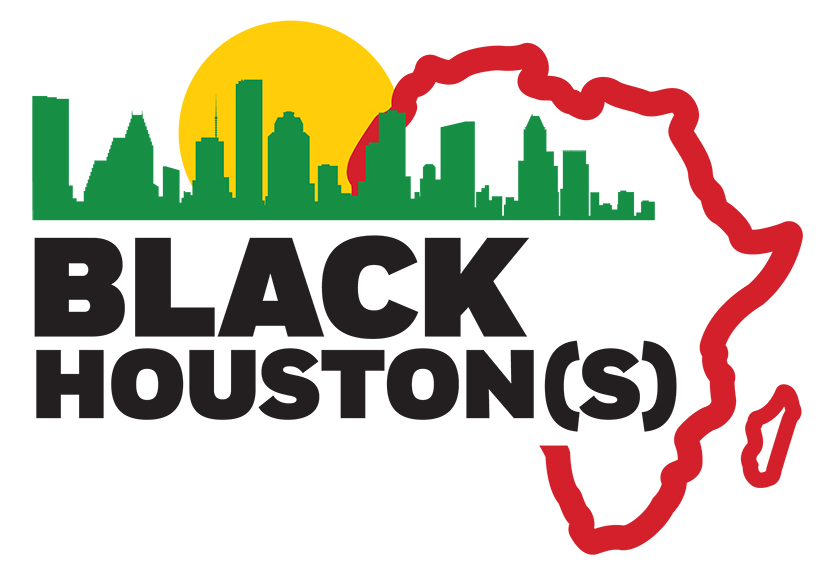Home to seven professional major-league sports teams, including the ASTROS (MLB), the ROCKETS (NBA), the TEXANS (NFL), the DYNAMO (MLS), and DASH (NWSL), Houston provides an international stage for record-setting global sports engagement, health research interventions, and Black cultural expression. These franchises emerge in a cultural context characterized by a vast playing field of athletic contests and racial consciousness in equal measure. Dubbed the “Eighth Wonder of the World,” the Houston Astrodome revolutionized sports entertainment as the first fully enclosed, air-conditioned major league stadium in human history. Constructed in 1965, the Astrodome aided in the desegregation of what was then the seventh-largest city in the United States during the height of the Civil Rights Movement. In a calculated act of desegregation, the Astrodome became the first sports arena in the city’s history to open fully integrated, all the while avoiding inflaming public backlash. This seldom acknowledged moment in the racial history of sports and urban development in Black Houston(s), warrants critical attention to such questions as: How have sports served as a site for Black Houstonians to negotiate economic mobility, political refusal, and social representation? In what ways have Black embodiment been policed, celebrated, or commodified in Houston’s athletic arenas? What stories and strategies emerge from Black Houstonian engagements with athletics across generations—from the 1940s Houston Eagles of the Negro Leagues to Houston’s own Jalen Hurts of the Philadelphia Eagles?
The Fourth Annual Black Houston(s) Symposium, titled “A League of Our Own: Sports and Embodiment,” will convene artists, scholars, athletes, organizers, and community members to explore the dynamic ways in which Black Houstonians have moved, been moved about, and been moved upon—politically and historically. “A League of Our Own” offers a cross-disciplinary symposium that interrogates the legacies and contemporary realities of Black embodiment and sport in Houston, from the professional arena of NRG to the pedestrian pick-up games of Emancipation Park. In doing so, we spotlight the physical, symbolic, and structural dimensions of Black movement—both celebrated and surveilled—across the city’s sports arenas, community centers, dance floors, and public parks.
Call for Papers / Panels
We welcome individual paper submissions, curated panels, and creative/performative presentations from the following:
- Scholars at all career stages (undergraduate to faculty)
- Artists, athletes, organizers, coaches, and community members
- Disciplines including but not limited to: African American Studies, Sports Management, Medicine, Kinesiology, Architecture, Art History, Religious Studies, STEM fields, Journalism, History, Psychology, and Performance Studies
Topics of Interest Include (but are not limited to):
- Paralympics & Disability Justice
- Gender, Sexuality & Sports
- Histories of Houston’s Negro Leagues
- Youth Sports & Mentorship
- Mental Health & Elite Performance
- Emerging Technology in Sports (Data, Analytics)
- Recreation, Race, & Reconciliation
- Embodied Spiritual Practices & Religious Dance
- Black Cowboys: Bull Riders & Wranglers
- Black Elders & Embodied Aging
- Athletics & Aesthetics
- Policing Black Athletic Bodies
- Nutrition, Black Foodways & Urban Farming
- Healthcare & Insurance Disparities
- Environment & Embodiment
The symposium will take place March 26-28, 2026 at the African American History Research Center, Gregory Campus (HPL - AAHRC) and at Rice University, respectively. The conference is free and open to the public, but registration is required to attend.
Submission instructions
Deadline: January 23, 2026, by 11:59 PM Central Time (CT)
To submit a paper or panel proposal, please fill out the Call for Papers/Panels form at https://blackhoustons.rice.edu/call-papers.
Please submit a 500-word abstract of the paper or panel proposal using the templates below. Please be certain to include the title of the paper/panel, your name, institution/affiliation, and contact information. If proposing a panel, please list all panelists and affiliations. Please submit abstracts as a PDF.
PAPER Proposal Template | PANEL Proposal Template
Participants will hear back about acceptance to the Symposium by the second week of February, 2026. Please email blackhoustons@rice.edu with questions.
Symposium Publication
Selected papers will be included in the symposium edited volume. Papers selected for inclusion must be original work and not previously published, and the paper cannot be under consideration for publication elsewhere. Graduate students and early career scholars are encouraged to apply. If your paper is accepted, the final submission will be due no later than July 1, 2026.
The symposium is generously supported by:
The Center for Engaged Research and Collaborative Learning (CERCL)
The Fondren Library
The African American History Research Center, Gregory Campus
The President's Office, Rice University
Center for African and African American Studies (CAAAS)
The Center for Environmental Studies, Rice University
Questions
Email blackhoustons@rice.edu with questions.
2026 Host Sponsors
African American History Research Center, Gregory Campus
1300 Victor St.
Houston, TX 77019
Rice University
Brian Patterson Sports Performance Center
2167-2227 Rice Boulevard
Houston, TX 77005

